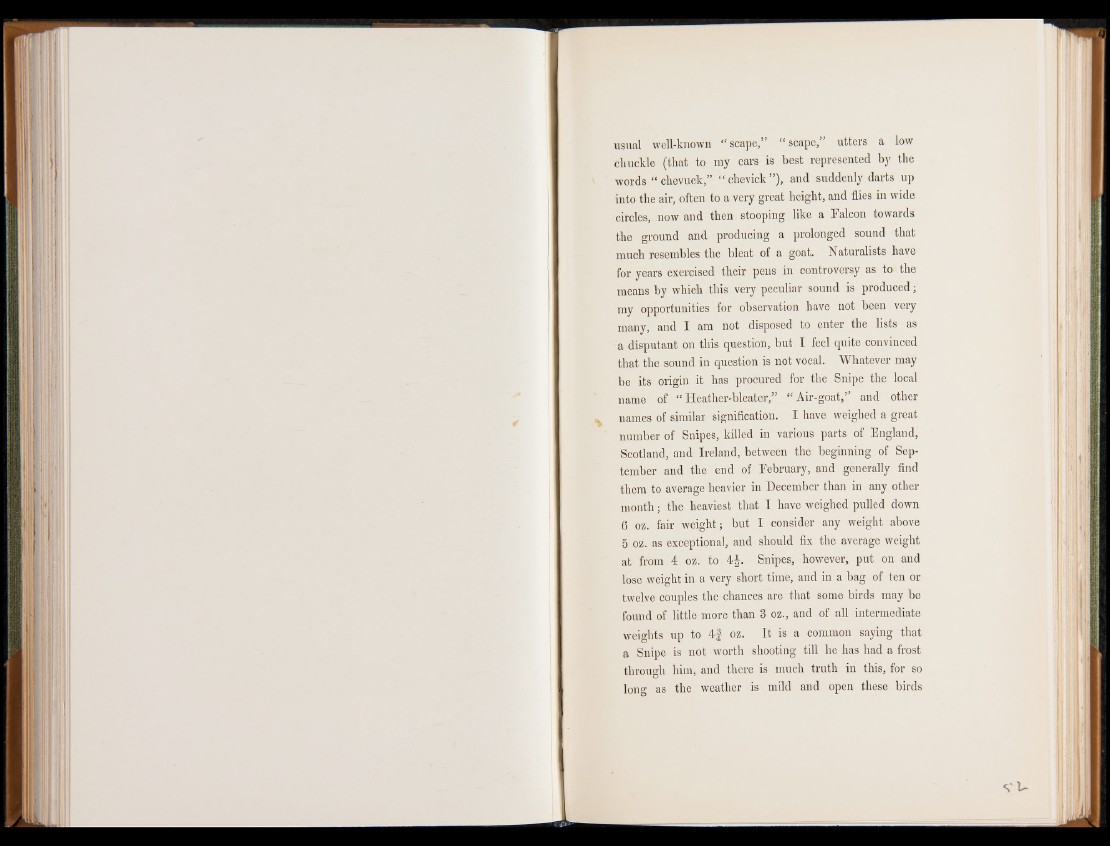
usual well-known “ scape,” “ scape,” utters a low
chuckle (that to my ears is best represented by the
words “ chevuck,” “ chevick ”), and suddenly darts up
into the air, often to a very great height, and flies in wide
circles, now and then stooping like a Falcon towards
the ground and producing a prolonged sound that
much resembles the bleat of a goat. Naturalists have
for years exercised their pens in controversy as to the
means by which this very peculiar sound is produced;
my opportunities for observation have not been very
many, and I am not disposed to enter the lists as
a disputant on this question, but I feel quite convinced
that the sound in question is not vocal. Whatever may
be its origin it has procured for the Snipe the local
name of “ Heather-bleater,” “ Air-goat,” and other
names of similar signification. I have weighed a great
number of Snipes, killed in various parts of England,
Scotland, and Ireland, between the beginning of September
and the end of Eebruary, and generally find
them to average heavier in December than in any other
month; the heaviest that I have weighed pulled down
6 oz. fair weight ; but I consider any weight above
5 oz. as exceptional, and should fix the average weight
at from 4 oz. to 4J. Snipes, however, put on and
lose weight in a very short time, and in a bag of ten or
twelve couples the chances are that some birds may be
found of little more than 3 oz., and of all intermediate
weights up to 4f oz. It is a common saying that
a Snipe is not worth shooting till he has had a frost
through him, and there is much truth in this, for so
long as the weather is mild and open these birds